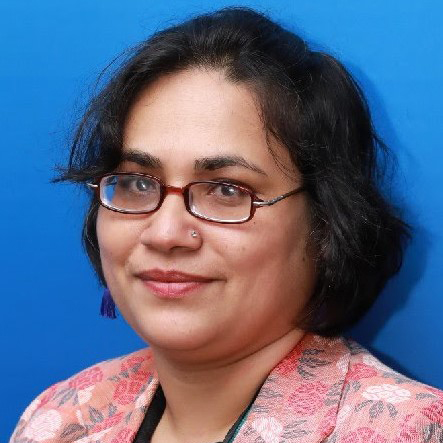Columns
No more judgements about breastfeeding, please
It is high time that the discussions are redirected towards the challenges mothers face that prevent them from breastfeeding sufficiently..jpg&w=900&height=601)
Neeti Aryal Khanal
A recent opinion article published in Kantipur Daily on August 14 has taken the Nepali Twitter world by storm. The writer, perhaps inspired by World Breastfeeding Week (which incidentally is held every year between August 1 and 7) supposedly wrote her piece based on two mothers that she personally knew. The writer had made swiping generalisations based on these two cases alone. Apparently, she had found that these women, both educated mothers of infants younger than eight months, were not breastfeeding their children either because they perceived the act to affect their beauty or because they prioritise their career goals over childcare. To the author of the opinion piece, the actions of these women represented a larger trend of educated women refusing to breastfeed their children, despite the government’s attempts at raising awareness on its benefits.
I cannot claim that such cases do not exist. It is possible that young mothers are uninformed regarding the possible benefits of breastfeeding and the harmful consequences of stopping breastfeeding early. But the way the article is written creates a misleading conclusion that all educated mothers are selfish, and only concerned about body image and their careers. The twitter discussions on the article were not any better than the piece itself. Many men were found to be claiming authoritative knowledge on the matter, agreeing with the writer’s hypothesis of young women’s body image issues. Even if what these men believe is true, don’t we need to ask why women are so conscious about the size and shape of their breast? Isn’t it because the male sexual fantasy has always centred around the firm, round breast, not the leaking ‘lumpy’ and ‘sagging’ breast that sustains the life of infants?
These twitter discussions led me to search for peer-reviewed journal articles on the topic online. A search with the term ‘exclusive breastfeeding in Nepal’ yielded 8,660 articles. Among them, 491 articles were published in 2019 alone. When the search was limited to include ‘educated working women’ the number of articles decreased. One of the most interesting research in the area that captured my attention was an article from 2019 titled Practice of Breastfeeding and its Barriers among Women Working in Tertiary Level Hospitals. These women who work at hospitals can be perceived as having relatively better access to knowledge and services on breastfeeding. But the results show the contrary. Only 11 percent of women were able to practice exclusive breastfeeding and more than half of women (51 percent) cited work-related challenges for not being able to breastfeed their children up to six months. Similarly, another research titled Assessing the Level of Knowledge and Practice of Breastfeeding Among Factory Working Mothers in Kathmandu, Nepal (2019) shows that 54 percent of factory-working mothers initiated supplementary milk and solid food earlier than six months due to the lack of sufficient breast milk. Interestingly, my rigorous search on body image and breastfeeding practices in Nepal fetched zero results. There were a few research articles, but mainly based on western contexts reporting conflicting results.
Leaving aside any judgements, it’s time the discussions are redirected towards the challenges young mothers face that prevents them from breastfeeding sufficiently. There has been relatively less discussion on enabling young mothers to learn how to breastfeed properly. Breastfeeding is generally conceived as a natural skill that young mothers gain automatically. Talking to any young mother will reveal that breastfeeding can be a very challenging, painful and nerve-wracking experience. The services of lactation experts are needed as part of the health service provided to young mothers. Currently, this support is provided in the hospital after birth, but is not ongoing and regular when women return back home.
Despite being a highly-educated working woman, I had very little information about breastfeeding when I had my first son in 2006. Listening to the advice of well-wishers, I introduced solid food fairly early—even before the six-month mark. When I was studying in Australia in 2009, I was fortunate to learn about expressing breastmilk from my friend who became a mother while studying. She used to store her breastmilk ahead of time, and leave it with her partner who would feed their infant daughter when the mother was away studying. So, I was better informed when I had my second child in 2010. I purchased a manual breast pump from a popular departmental store and started to express breastmilk. My family members would feed my infant son when I was away. As a part-time faculty member, I did not have access to paid maternity leave. Express breastfeeding allowed me to breastfeed my son exclusively for six months even when I was actively teaching.
We should stop shaming working mothers and labelling them as ‘career-oriented ‘selfish’ and ‘heartless’. Young mothers are overwhelmed with the new responsibility and are likely to experience postpartum depression. They need active support—in all aspects of childcare—from their husbands, parents and in-laws. Besides that, we need to discuss flexible working arrangements. In the digital age, professional work is not tied to the physical space of the office anymore. Young mothers should have the option of working from home, at least for a few days a week. This should be the new benchmark for a gender-friendly workplace. Workplaces also need to have private spaces to breastfeed and to express breastmilk without guilt and embarrassment. Last but not least, all working mothers should pat themselves on the back for trying to juggle the difficult balance between their careers and motherhood.




 22.28°C Kathmandu
22.28°C Kathmandu















